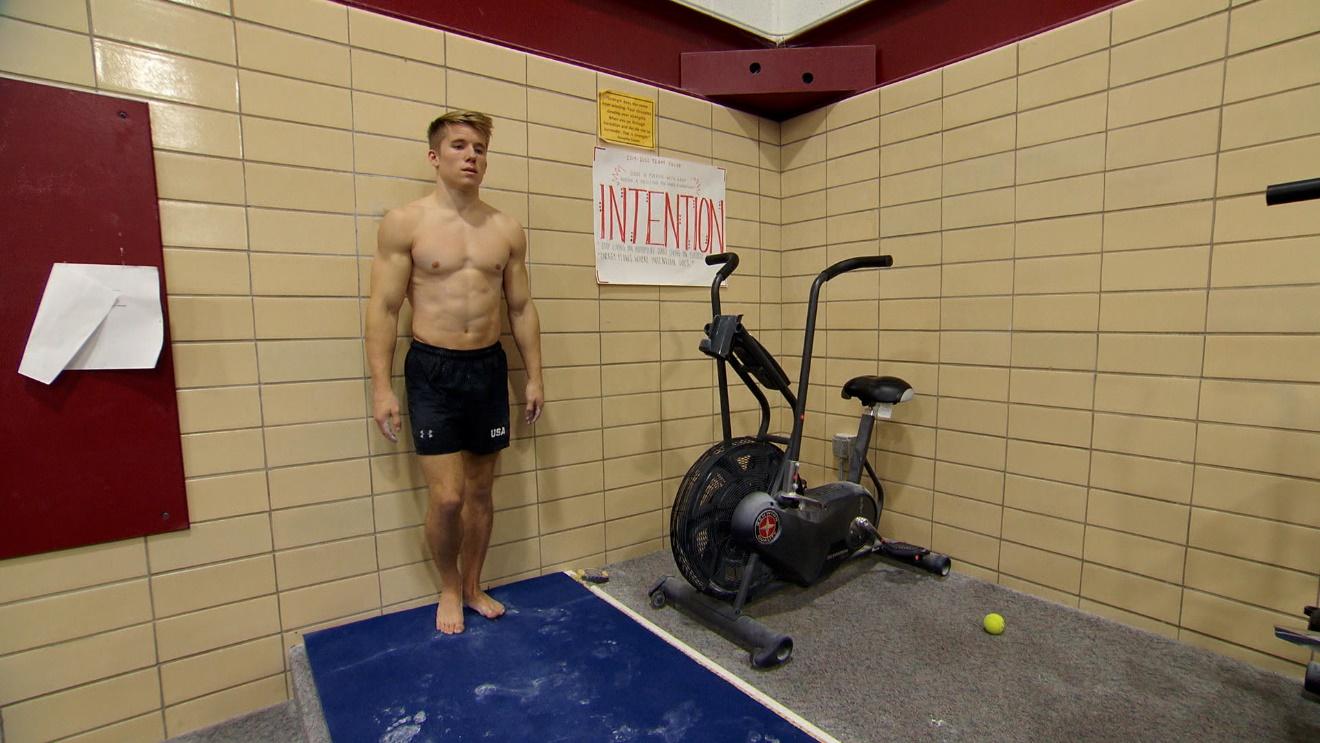Release
ON “60 MINUTES” SUNDAY: AS COLLEGES PULL OUT ALL THE STOPS TO CONTINUE LUCRATIVE TV SPORTS IN THE PANDEMIC, TEAMS LIKE GYMNASTICS, TRACK AND FIELD AND TENNIS MISS THE CUT

Shane Wiskus is an Olympic Hopeful on the U. of Minn gymnastics team.
Lives and Dreams of Athletes in “Secondary Sports” are Being Sacrificed on the Altar of Big Time College Sports
Shane Wiskus is a top-rated gymnast at the University of Minnesota with a real chance of making the U.S. Olympic Team. But the senior worries his talented teammates in classes below him will not get the same chance because the university cut the men’s gymnastics program amid the pandemic. So-called “secondary sports” like his are being sacrificed across the U.S. even while those colleges go to extraordinary lengths to keep big revenue-producing, televised sports like football and basketball on-air during the pandemic. Bill Whitaker takes a look at how the pandemic is affecting thousands of college athletes on the next edition of 60 MINUTES Sunday, Dec. 6 (7:00-8:00 PM, ET/PT) on the CBS Television Network.
“I think the team that we have right now is arguably one of the most talented teams we’ve ever had. So to see that a lot of these guys are going to have to be done with the sport, it breaks my heart,” says Wiskus of his 17 teammates. “I do not regret coming to the University of Minnesota one bit. But I’m still mad,” he tells Whitaker. “Gymnastics, I believe, is a crucial component in preparing gymnasts for, you know, not only success for their team, but success for the United States on the world and Olympic podiums.
The coronavirus pandemic blew a huge hole in the University of Minnesota’s athletic budget. The school cut salaries and costs, but also addressed the shortfall by terminating its men’s gymnastics, indoor track and field and tennis programs. Elsewhere it’s the same story for more than 1,500 male and female college athletes. At least 30 Division 1 universities have cut almost 100 programs, among them soccer, squash, golf and swimming. Football powerhouse Clemson is in the hunt this season, but its men’s track and field team has been scratched. The Stanford Cardinals football team still competes in the Pac 12. But the university has eliminated 11 other sports.
Wiskus understands how much money – mostly through TV contracts – the University of Minnesota’s football team brings in, and how that helps pay the bills for secondary sports like his. “Don’t get me wrong. I respect the football team…But their hard work is not any more important than our hard work…This is just a very clear, backhanded decision that, you know, it hurts,” says Wiskus.
The university’s football coach took a salary cut to help defray pandemic deficits; he still makes over $4 million a year. Cutting men’s gymnastics, indoor track and field, and tennis will save the university a total of $1.6 million. Mike Burns, the gymnastics coach at Minnesota, doesn’t see how eliminating his budget really helps much. “If it does, I’d like to see those numbers. I know…I’m not the head of the math department, but that doesn’t make sense to me,” he says with a laugh.
Burns says Big Ten college athletic directors are too quick to cut sports without seeking other solutions. He tells Whitaker those athletic directors are using programs like his as poker chips to bet in the bigtime college sports game. “But it’s more than just a poker chip. It’s somebody’s life, you know?”
Follow 60 MINUTES on Twitter, Facebook and Instagram.
* * *
Press Contact:
|
Kevin Tedesco |
212-975-2329 |
-
Publicity
Natalie Pahz
PahzN@cbs.com
